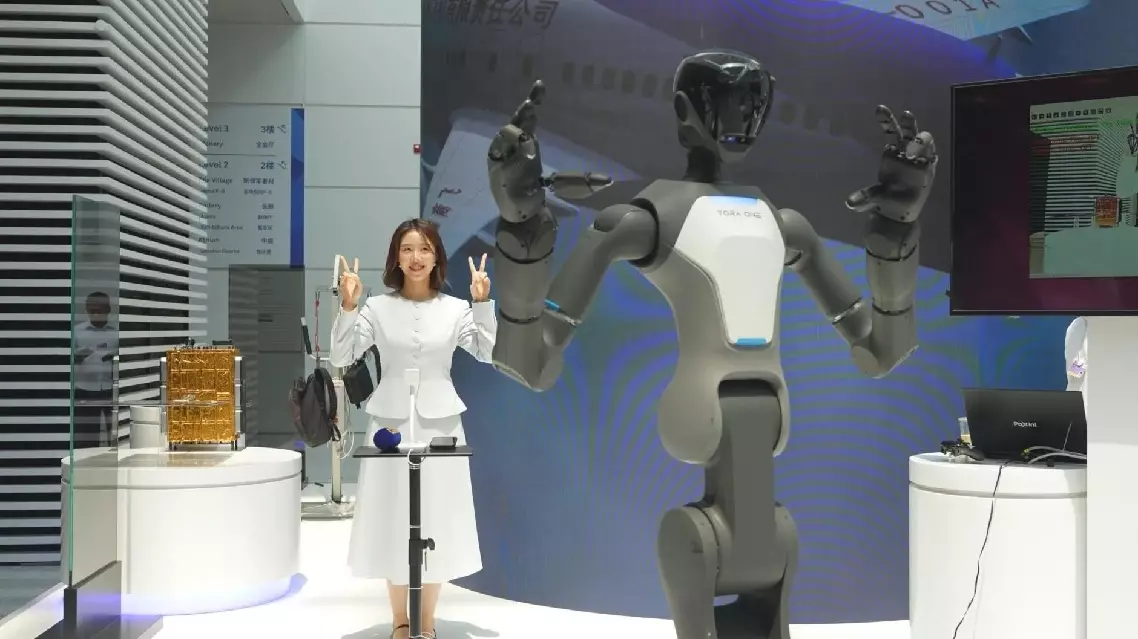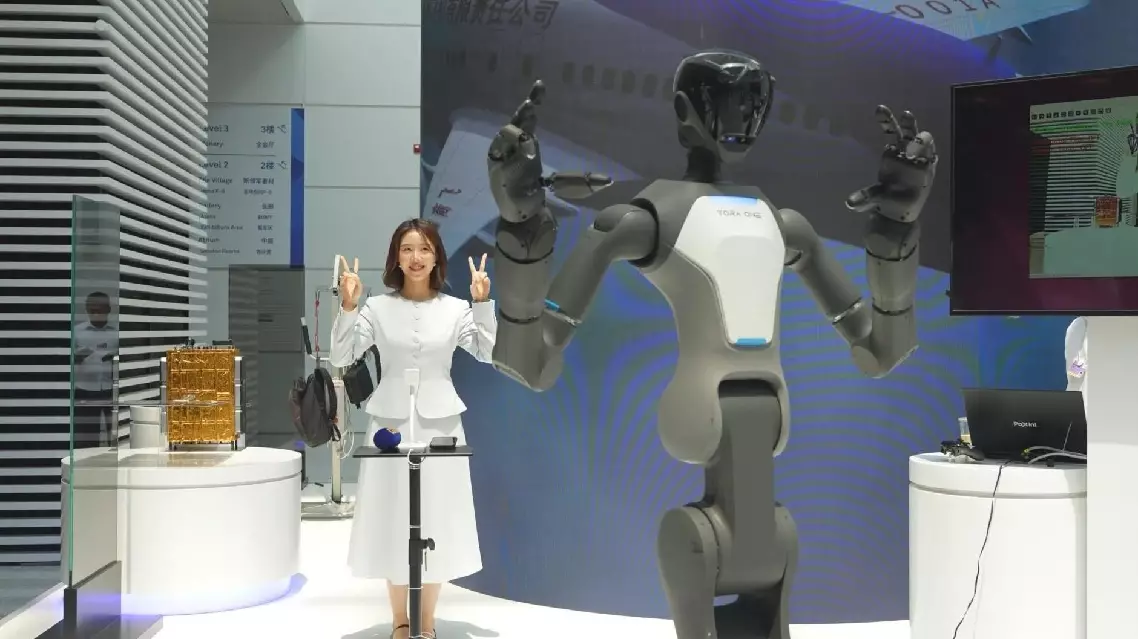The 2025 Summer Davos Forum, which kicked off in north China's Tianjin Municipality on Tuesday, has seen extensive discussions among industry leaders on AI development and application, shedding light on how AI will transform industries.
The three-day forum, themed "Entrepreneurship in the New Era," has drawn around 1,800 participants from nearly 90 countries and regions. The day-one discussion centered more on industrial transformation, AI-powered factory upgrades, and emerging technologies. Many senior international executives and entrepreneurs expressed optimism about an AI-assisted future.
"I believe if you draw the comparison to what we saw in the 90s, where actually we saw the advent of robotics on the shop floor, many people were scared because they were thinking, actually, it's going to take jobs away. But if you walk around today, there's more employment than ever. And what we've seen with robotics is that it was replacing the 'muscles' of the humans. Now with AI, what we're going to see is the same thing for the brain. So now many people are scared that it's going to take away brain work. But we believe actually it's going to create more. Why? Because it's going to replace repetitive work where you have to do things over and over again, which we as humans are not really particularly good at. And we can focus our creativity, our empathy, our ability to see the bigger picture, and create new business opportunities. So the way we think about this is actually [that] the best is yet to come," said Peter Koerte, member of the managing board of Siemens AG, who also serves as both chief technology officer and chief strategy officer.
In specific sectors, AI has already made an impact, and global innovators have been actively seeking chances to introduce AI into conventional work flows.
"Software development is definitely, I think, the number one [area] that is being affected by the AI. And also I think healthcare, because research in healthcare is very, very expensive, not only on drug developments which we see about a billion dollars [has been spent] in ten years, and also the diagnosis, and also insurance are very costly. And so we see about 20 percent of GDP being spent into healthcare in the U.S., and [the number for] China is growing very, very fast. So our company, Yidu Tech, we have helped our clients process about 6 billion medical records. And we have a large data infrastructure that is being used by hospitals, regulators, as well as insurance companies and pharma companies. And we see a huge reduction on cost and operational efficiency for all those clients," said Gong Rujing, founder and chairwoman of Yidu Tech, a pioneer company in AI-driven healthcare transformation.
Notably, a widespread consensus among industry leaders is that AI will not replace human beings or lead to job loss. Human-AI collaboration would be a power efficiency booster, yielding more time for creativity.
"So, in our industry, we can see that the trading industry will be affected a lot. You will have, at some point probably, some agentic traders taking positions directly on the markets, being commodities, equities, derivatives. That's clearly something we see happening. We work, for example, a lot with hedge funds and we know they are investing a lot of money trying to see [if AI works]. For now, it's not completely operational. You see the human [is still] in the loop, and I think it will still be the case. But probably you will have one human managing hundreds [of] agentic AI at some point, so you can [find] a way to multiply the power of one human with the right tools," said Jean Maynier, president of Kpler, a Brussels-based data and analytics platform for traders.

Industry leaders discuss AI empowerment at Summer Davos in Tianjin

Industry leaders discuss AI empowerment at Summer Davos in Tianjin









